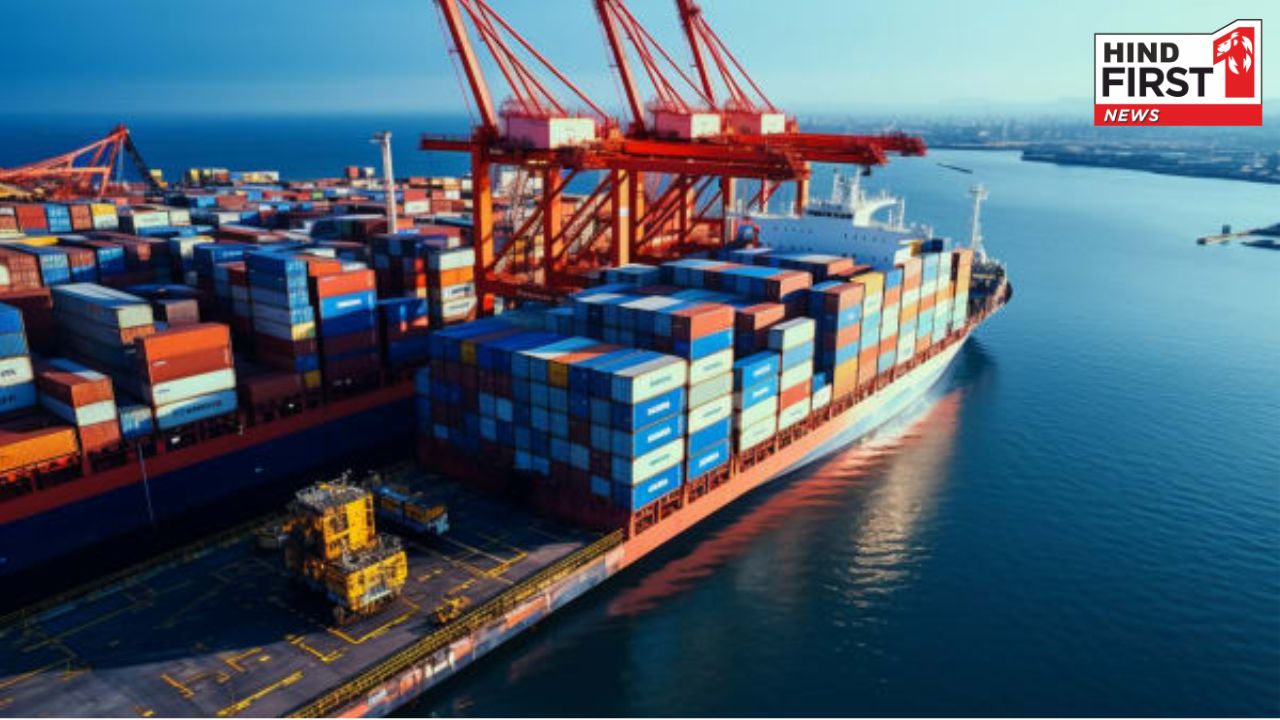India's Trade Deficit Narrows in September
India's goods trade deficit in September dropped to a five-month low, thanks to a slight increase in exports compared to last year. However, exports saw a sequential decline, indicating that the growth remains fragile. Imports also hit their lowest since May, reflecting weakened domestic demand. The trade deficit—the gap between exports and imports—was $20.78 billion in September, down from $29.65 billion in August. In comparison, the deficit stood at $23.5 billion in July, $20.98 billion in June, and $19.1 billion in April. Experts had predicted a deficit of around $25 billion for September, so the lower figure brought some relief.  Commerce Secretary Sunil Barthwal highlighted that despite global challenges, Indian exports have shown resilience. Engineering goods now account for nearly a quarter of all exports, with growth also seen in sectors like chemicals, plastics, pharmaceuticals, and ready-made garments. "These sectors have propelled India's export growth, helping the country maintain a strong position in global trade," Barthwal noted. Merchandise imports for September were $55.36 billion, slightly higher than $54.49 billion in the same month last year, but significantly lower than August’s $64.36 billion. This reduction in imports signals a drop in domestic demand.
Commerce Secretary Sunil Barthwal highlighted that despite global challenges, Indian exports have shown resilience. Engineering goods now account for nearly a quarter of all exports, with growth also seen in sectors like chemicals, plastics, pharmaceuticals, and ready-made garments. "These sectors have propelled India's export growth, helping the country maintain a strong position in global trade," Barthwal noted. Merchandise imports for September were $55.36 billion, slightly higher than $54.49 billion in the same month last year, but significantly lower than August’s $64.36 billion. This reduction in imports signals a drop in domestic demand.
Trade Performance in September
In terms of value, merchandise exports in September rose slightly to $34.58 billion from $34.41 billion in the same period last year. However, this yearly increase came with a small dip compared to August’s $34.71 billion. Export values have fluctuated in recent months, reflecting uncertain global demand. Exports were at $33.98 billion in July, $35.20 billion in June, and $38.13 billion in May. Commerce Secretary Sunil Barthwal highlighted that despite global challenges, Indian exports have shown resilience. Engineering goods now account for nearly a quarter of all exports, with growth also seen in sectors like chemicals, plastics, pharmaceuticals, and ready-made garments. "These sectors have propelled India's export growth, helping the country maintain a strong position in global trade," Barthwal noted. Merchandise imports for September were $55.36 billion, slightly higher than $54.49 billion in the same month last year, but significantly lower than August’s $64.36 billion. This reduction in imports signals a drop in domestic demand.
Commerce Secretary Sunil Barthwal highlighted that despite global challenges, Indian exports have shown resilience. Engineering goods now account for nearly a quarter of all exports, with growth also seen in sectors like chemicals, plastics, pharmaceuticals, and ready-made garments. "These sectors have propelled India's export growth, helping the country maintain a strong position in global trade," Barthwal noted. Merchandise imports for September were $55.36 billion, slightly higher than $54.49 billion in the same month last year, but significantly lower than August’s $64.36 billion. This reduction in imports signals a drop in domestic demand. Fluctuations in Service Exports and Imports
India's service sector also contributed to trade performance. Service exports rose to $30.61 billion in September, up from $28.42 billion in the same period last year. Service exports were $30.69 billion in August, $28.43 billion in July, and $30.27 billion in June. Service imports also saw an increase, reaching $16.32 billion in September compared to $14.58 billion a year earlier. The overall trade deficit, combining both merchandise and services, widened to $6.49 billion in September, slightly higher than the $6.23 billion in the same month last year.Global Challenges Impacting Exports
Barthwal acknowledged the challenges Indian exports face due to global issues such as slowing economic growth, geopolitical tensions in West Asia and Ukraine, and disruptions along important trade routes like the Red Sea. The World Trade Organization (WTO) had forecasted a recovery in global trade by 2024, expecting trade volumes to grow by 2.6% in 2024 and 3.3% in 2025. However, geopolitical risks continue to pose threats to this outlook.Key Export Drivers and Import Sources
In the first half of FY25 (April-September 2024), key drivers of India's merchandise exports included engineering goods, electronics, pharmaceuticals, chemicals, and ready-made garments. Major export destinations included the US, UAE, Netherlands, UK, and China. Also read: India's Retail Inflation Hits Nine-Month High: Key Insights On the import side, India’s key suppliers were China, Russia, UAE, US, and Iraq, reflecting the country’s reliance on essential inputs and energy imports. Next Story


